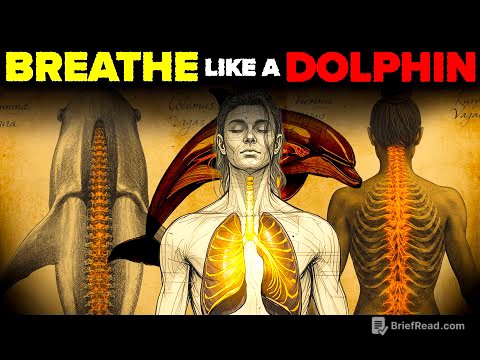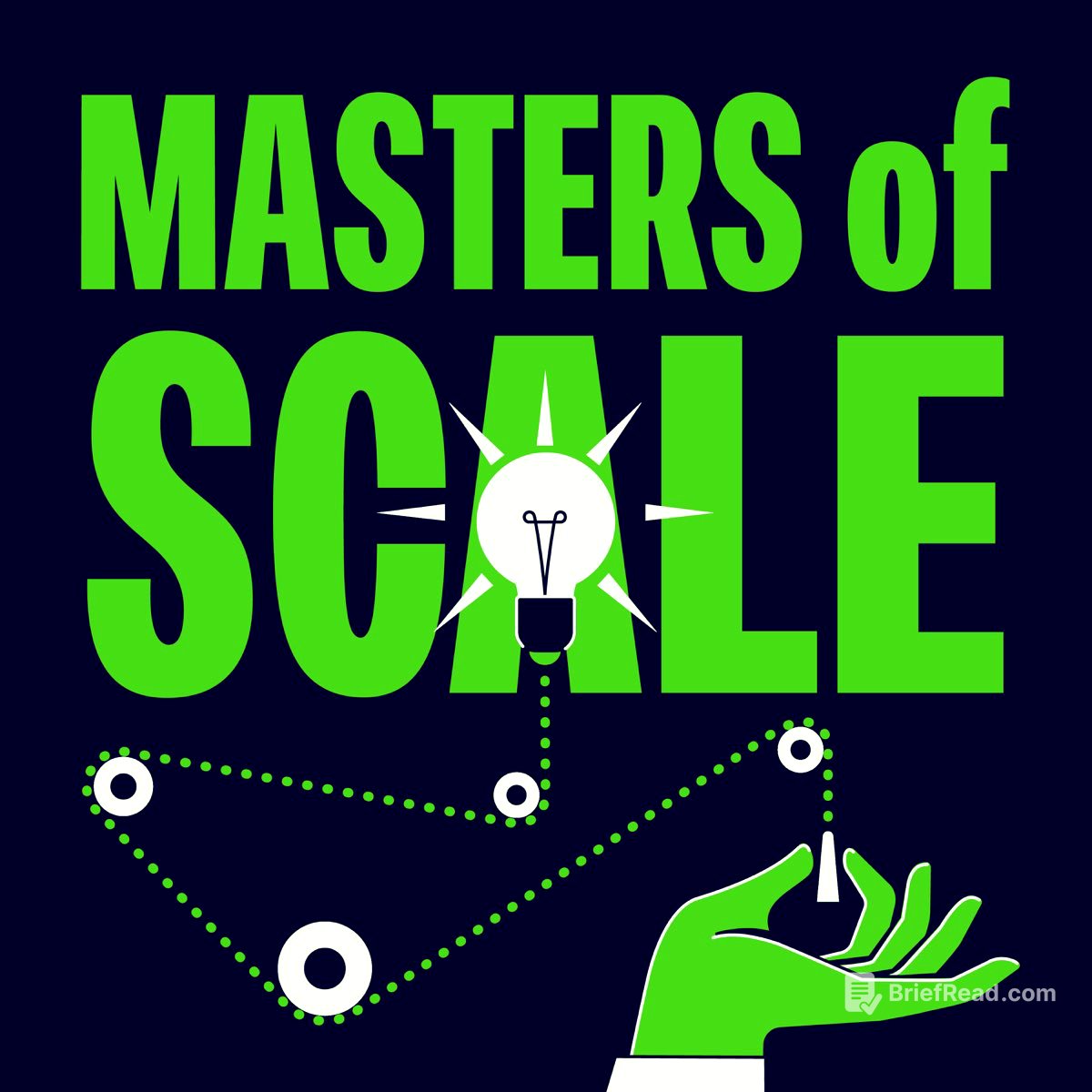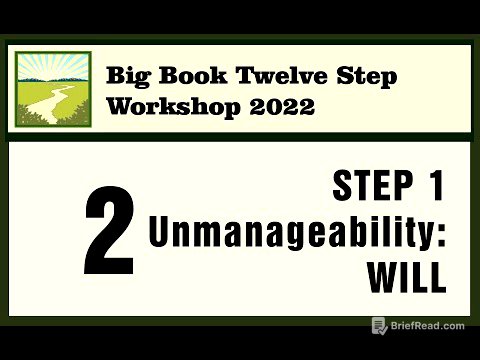TLDR;
This video explores the relationship between the Quran and the universe, the concept of divine names, and the wisdom found in the Risale-i Nur. It discusses how the universe can be seen as a book that needs interpretation, and how the Quran provides that interpretation. The talk also touches on the importance of balancing reason, logic, and emotion in understanding faith, and the unique approach of Bediuzzaman Said Nursi in interpreting the Quran and the universe.
- The universe is a book that needs commentary, and the Quran provides that commentary.
- The Risale-i Nur offers a unique perspective on understanding the Quran and the universe.
- Wisdom involves balancing reason, logic, and emotion in understanding faith.
The Universe and the Afterlife [0:45]
The speaker addresses a question about whether everything in the universe, including the unseen world and the afterlife, exists in this material world. He recalls a past conversation about the universe being open yet closed, emphasizing the depth of this truth. He connects this to reading the Quran incompletely and questions whether the unseen world and the afterlife also exist in the universe.
The Quran and the Book of the Universe [4:34]
The discussion centers on the relationship between the "book of the universe" and the Quran, a theme frequently emphasized. The speaker highlights that physics, chemistry, mathematics, and astrophysics originate from the "book of the universe". While not directly stating that the Quran explicitly expresses scientific concepts, he asserts that the two books are in agreement. The Quran describes the universe to intelligent beings and serves as a commentary on its meaning.
Interpreting the Universe Through the Quran [7:30]
The speaker emphasizes that the Quran is being read from the universe in the grand mosque of the universe. The universe is a book that needs commentary, and God communicates many things through it. Maturidis believe that the existence of the universe is sufficient to bind humans to faith. The Quran deciphers the book of the universe, clarifying ambiguities and providing details. Without the Quran, understanding the book of the universe would be impossible.
The Balance in the Quran [10:19]
The speaker explains that the Quran explains human truth, divinity, adjectives, and Esma (names). It balances the relationship between man and creator, creator and creation, and man and the Quran. The Quran details heaven, hell, and resurrection. The speaker emphasizes that the Quran explains these issues in detail, unlike other prophets or original libraries.
The Manifestation of Divine Names [11:29]
The speaker discusses the book of the universe as a separate manifestation and the true universe as the manifestation of divine names. Existence is the light of God Almighty's existence. He references Imam Rabbani, noting that representing the true profession of the companions involves valuing the soul, heart, corporeality, and physical existence. The bodily particles accompanying the soul and heart help the soul attain human perfection.
Heaven and Hell in the Universe [14:18]
The speaker explores the existence of heaven and hell within the universe. He uses the example of the reflection of a crown to illustrate that everything exists in the universe. Some things have been removed or left vague because they may not be directly related to our duties or our relationship with God. The commands of the Quran directly concern us.
The Sunnah and Heavenly Truths [16:13]
The speaker mentions that heavenly truth exists in seed form and that Ahlus Sunnah wal Jama'ah is at the heart of existence. He explains that heaven develops through worship and obedience, with words spoken being like seeds sown for the afterlife. Hell also develops similarly. Throughout life, one weaves their own lace of heaven and hell, and the paradise within is a summary of behaviors.
Reminders in the Book of the Universe [19:35]
The speaker states that God constantly reminds us of important truths by copying faith-related issues in the book of the universe. This reinforces our minds and solidifies our hearts. The treatise on resurrection is copied and duplicated every year in the universe. The speaker believes that the details in the Quran have been captured and expressed very well, convincing our minds and giving our hearts peace with the resurrection.
The Limits of Understanding [20:34]
The speaker notes that many issues in the Quran are sometimes dead in summary in the book of the universe. The speaker emphasizes that the world related to us has a lot to tell us, and detailing it is not wasteful. He quotes a verse about showing signs on the horizon and in the inner world to reveal that Allah is the truth.
The Divine Names and Wisdom [26:59]
The speaker discusses the Divine Name Hakim, the source of wisdom, which appears frequently in the Quran. He notes that the name "judge" is also mentioned often. Wisdom is often mentioned alongside the book, and hadith scholars often call it the sunnah. Great individuals manifest different divine names, and the Master (Bediuzzaman Said Nursi) goes by different names.
The Wisdom in Risale-i Nur [31:23]
The speaker explains that the Master addressed people's minds, logic, and feelings, creating a structured structure that leaves no room for emotional, intellectual, and logical gaps. He appealed to reason, logic, and judgment. The speaker notes a serious agreement between the lights and the wisdom that can be interpreted in this way. The lights have always followed the line of truth.
The Divine Names in the Lights [32:48]
The speaker emphasizes that the true reality of things is the Divine Names and their manifestations. When you examine the lights, you will see that the Divine Names are dripping from it. The details given there are at a level that almost everyone can find in the pesent. The speaker met an Arab scholar who was fascinated by the details the master gave regarding this matter.
The Embodiment of Wisdom [34:26]
The speaker asserts that no other human being can be shown to be as good as the master, who walks to God by saying that He is known by His Names and encompassed by His attributes. The Risale-i Nur is the embodiment of that pure, clean spirit and the pure soul behind it. The speaker clarifies that the master evaluated positivist results but was not a positivist himself. He was closer to being a rationalist, benefiting from all perspectives to the extent permitted by the Quran.
The Causes of Knowledge [36:59]
The speaker explains that the issues about which we ask "Is this or that?" are, according to Islamic theologians, the causes of knowledge. Emotional well-being is one of the causes of knowledge, as is the consensus of scholars. The master remained consistent with these principles. He is a great interpreter who interprets the revelation with all its vastness, giving reason its due but interpreting everything under the guise of revelation and inspiration.
Personal Anecdotes and Lessons [39:30]
The speaker shares personal anecdotes from his time in Barla with the master. He recounts an incident where the master emphasized the importance of following the Sunnah's wishes, stating, "Otherwise we will get slapped." This highlighted the need to observe and benefit from divine guidance.
Conscious Diskettes and Divine Meaning [42:53]
The speaker describes themselves and others as "conscious diskettes of the original recordings." He expresses humility and gratitude, noting that the master would have been pleased with the current gathering. He shares that the master chose grief and sorrow, but there are also servants who flow like oceans in the spiritual world.









